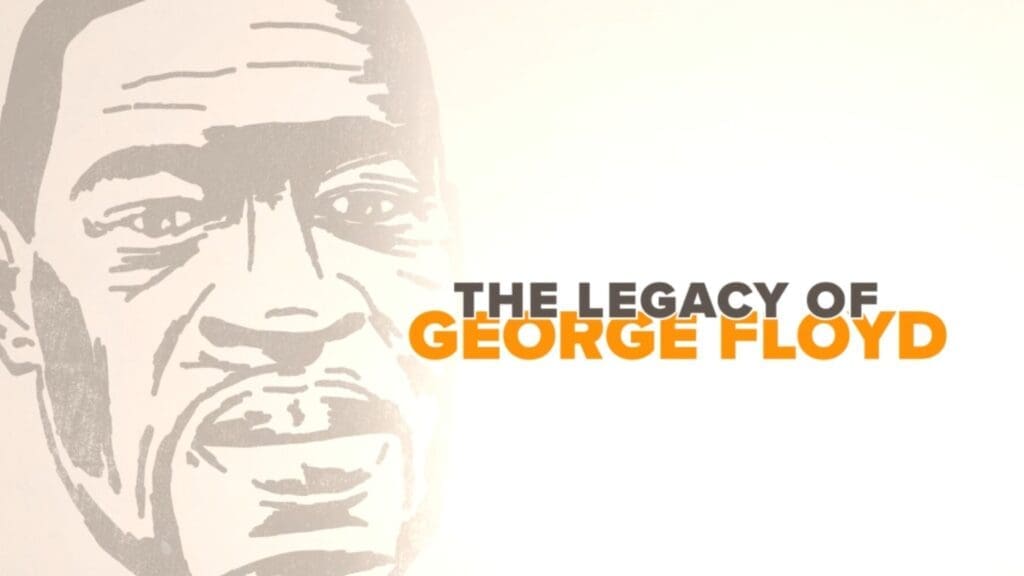Faith & Reflection: Voices from the Black Church and Beyond
1
(ThyBlackMan.com) May 25 marked five years since the murder of George Floyd. Floyd’s death should never stop being a catalyst for social change. His death illustrates how a typical, nonviolent encounter with law enforcement can go wrong, resulting in another needless death of an innocent person. His death revealed the depth of our commitments to humanity as individuals and a nation. For more than nine minutes, while police officer Derek Chauvin knelt on the back of Floyd’s neck, Floyd repeatedly cried out, “I can’t breathe,” which became a protest slogan against police brutality.
I do not believe any human being, Black, white, or brown, should die in police custody under those circumstances. Nor do I think a person’s life should be taken away over a counterfeit $20 bill. Many people who shared that sentiment protested nationally and worldwide in record numbers. As we live in a nation where many people view situations through a racial lens rather than a lens of humanity and common decency, all citizens have the moral responsibility to resist any form of inhumane treatment at the hands of police officers regardless of the race of the victim or the officer.
The George Floyd protest movement began hours after his murder when protests in support of police accountability and racial justice started in Minneapolis and then spread quickly nationwide and to over 2,000 cities and towns in over 60 countries. Polls estimated that between 15 million and 26 million people had participated in demonstrations in the United States at some point. In the aftermath of Floyd’s murder, there was a surge in support for DEI initiatives and calls for police reform. Unfortunately, the surge could not be sustained.
Trump was under tremendous pressure to respond during his first term as president. At the time of the protest movement, Trump issued an executive order to reform policing, which included tightened use-of-force rules, banned chokeholds, steered federal dollars toward state and local police that meet certain standards, and encouraged initiatives that better address vulnerable populations’ needs and lessen the burdens that law enforcement face in responding to them. The public pressure placed on Trump made a difference in his actions.
If you take away the pressure and exposure of national and worldwide protests, the true Trump is free to emerge and lead the backlash against progressive police reform initiatives. As a result of the backlash, the nation reversed course by taking two steps forward and three steps backward. Corporate America flip-flopped on its commitments by scaling back or eliminating DEI policies and programs. The division within the Justice Department responsible for enforcing the nation’s federal civil rights laws has seen a mass exodus of over 100 attorneys, as confirmed by DOJ Assistant Attorney General Harmeet Dhillon, who leads the division.
The resignations come as the department shifts away from policies such as enforcing voting rights laws and taking strict action against unconstitutional policing. The Trump administration moved to cancel agreements to overhaul the police departments in Minneapolis and Louisville, both accused of widespread abuses.
Individuals and organizations with political and corporate power who oppose DEI efforts find themselves against the fundamental idea of having a multiracial society based on fairness and respect. This is the statement they are making about their decisions. Therefore, those in opposition are also fundamentally resistant to the methods such as consent decrees and other forms of police reform used to achieve a fair and just multiracial society. Those who are sincere and firm in their support for diversity efforts and for what George Floyd’s death means to police reform will show their commitment to the long-term fight for justice while also remaining unwavering in their resistance to any form of intense backlash.
“(George Floyd) was a realization by many across the country that this open murder was something that was not only appalling but it brought full circle the question of the treatment of Black people, particularly Black males, in this country,” said NAACP President Derrick Johnson. “But the other side of that story is an unfortunate fatigue in this country.” Experts say periods of backlash aren’t new. Throughout American history, including after the civil rights movement, the nation has experienced periods of “racial fatigue” or resentment after progress was made toward securing rights for marginalized groups.
As we live in a country where many people view situations through a financial lens of greed rather than a lens of humanity and common decency, the form of resentment may be an economic regret when having to pay a fair wage.
So, the question is, was George Floyd’s death in vain? “Racial fatigue goes both ways when we grow tired of the racist backlash. At some point, there has to be a reset with public outrage resulting in a backlash to the backlash.” At some point in future election cycles, the George Floyd Justice in Policing Act should be passed. The Trump administration felt the pressure before; they need to feel it again.
Written by David W. Marshall
Official website; https://davidwmarshallauthor.com/
One may purchase his book, which is titled;
Read the full article on the original source


